At that time, the whole country lacked rice and had to eat corn, potatoes, and corn mixed with rice. The joy of peace and unification did not last long before war broke out on both sides of the country's border.
This newly reclaimed area in the Southeast region was a real treat. The land was so good that even if you planted three trees in a hole, you could still get six corns. During the day, deer would call and at night, wild boars would come out in droves. At first, everyone thought that with their determination to overcome difficulties, turn fields into gardens, and barns into camps, they would have a good life. But when they started working, they discovered: many bunkers containing weapons and military equipment from the war that were left over. And the scariest thing often happened: digging up something that had not yet exploded.
Peace has come, but the "evil god of war" has not left, still lying in wait somewhere to cause casualties to the unfortunate. After the engineering troops cleared the bombs and mines, returning green life to the land, a rice shortage occurred. Putting the dream of changing one's life in danger of bankruptcy.
For the first time in my life, I realized how lifeless my body was without carbohydrates. Not only was there no rice, but I had to carefully examine each sweet potato and cassava on the field. When the cassava was still young, the whole neighborhood went out to buy it. Sometimes I had to laugh and cry, eating shredded cassava skins, stir-fried with wild game. I will always remember the story of helping two beautiful girls pull cassava out of the cogon grass under the hot sun. "You are a city person, so I will sell it. But those other girls who are farmers and don't know how to grow cassava are hungry, so even if you offered me gold, I wouldn't take it." After saying that, the village chief had to confiscate all the rare cassava that he hadn't weighed yet. He chased the three of us away like an evil spirit. So, whether I wanted it or not, every year I had to plant a patch of cassava around my house.
Although he had been through two resistance wars, Mr. Ba still refused to return to the city to enjoy the "meritorious person" regime. He stayed to be the Head of the Farmers' Association. Although he was old, he still went into the forest, climbed thorny bamboo bushes, each tree as big as a calf, and chopped it all day long. Young men flocked to build houses and schools. His generosity was unspeakable. Whoever borrowed anything, he gave it. When asked, he gave it away. Like the time I stopped by his house to find the wire that had been used to tie a broken cart. He took out a bunch of it and said, "Take it off and use it."
His house was a warehouse for war scrap. From water tanks, parachutes, old oil stoves made from artillery shells, to tank chains used as anvils to hammer... Even pieces of B52 bombs were used as gongs to announce meetings. Also as a support tool, he could use a winch to lift a whole water tank to the mouth of a public well for people to use freely, but don't expect to find any pulleys. Because it brought back the haunting memory of being tortured by secret police by pounding a pestle, because he dared to organize the robbery of a French weapons ship. They kept pulling the pestle up and down the pulley, pounding the tank until his chest sank, causing him to die and come back to life several times.
During the anti-American war, when the Australian-New Zealand coalition (the old name Vietnamese people used to refer to New Zealand) surrounded May Tao mountain, his guerrilla team had to eat water spinach, yam, and water chestnut to survive day by day to protect the resistance base.
Someone jokingly said: "He is not afraid of any Westerners, only afraid of thieves."
In the village, there was a bald-headed Nhan. He was depressed because his wife had left him, so he often complained to himself over bottles of rice wine. Every time a house was robbed, everyone thought of him. How could he not suspect him: if he was debauched all day, where would he get money to support his old mother and his young children?
There is another "ghost". That is Loi "the tractor". He is famous not because he drives a red car in the satirical saying "black buffalo eat grass, red buffalo eat chicken", but because one time after drinking, he got excited and took a wrench to remove the wheel of someone's tractor and hid it.
That night, Mr. Ba and I lay together in a secret dug-out tunnel. From this position, we could observe the entire cassava field area below the slope with night vision binoculars (spoils of war confiscated by Mr. Ba during a siege of a fort). He kept it, along with medals, personal papers, and prisoner exchange papers, in a machine gun ammunition box buried under a bamboo bed that had turned brown over time. Everyone wondered why, even though peace had come, he was still digging tunnels in the garden. He squinted his eyes and smiled, saying, "It's better to be safe than sorry!" When people burned down the fields, it spread to his garden. The fire was so devastating that only a pile of smoking ashes remained. He still chuckled. "If the house burns down, rebuild it. If the 'battle' is lost, what will we leave for our children and grandchildren?"
Illustration: AI
The moon was high in the sky, but there was no movement. The buzzing of mosquitoes could not dispel my sleepiness. I grabbed the poncho, covered myself with it, and turned to lie on my side.
“Wake up! It's coming!” his whisper made me sit up with the flashlight.
In the binoculars. A white figure bobbed up and down, weaving through the cassava. Then a conical hat appeared bobbing up and down behind. My chest was pounding because it was my first time catching a thief. I groped around. Mr. Ba was nowhere to be seen. Perhaps his commando skills had helped him quickly approach his target. He once said he could run from Vung Tau to Saigon in just one morning, which no one dared to believe. What was special about him was that he never wore sandals. No matter how he went through the forest, across the stream, or wherever he went, dogs did not dare bark. People rumored that he had tiger skin on him.
The thief was stunned when Mr. Ba Rau shone the flashlight straight into his face. I tried my best to shout: "Thief! Thief!"... I grabbed the shirt of the man wearing the conical hat. Suddenly, I heard the cry of a baby. Through the flashlight, I realized that it was a woman breastfeeding her baby.
The thief was none other than the parent of the class I was in charge of. A few days ago, a student suddenly fainted during recess. His face was pale, his mouth gasping for breath like a fish out of water. His condition was exactly like that of the playful guy in the neighborhood. Because he only ate jackfruit segments and boiled jackfruit seeds, he kept fainting in front of his house. When I pressed his philtrum, he woke up and mumbled, "Give me a bowl of rice!". The same thing happened to the student. When I asked if he wanted to eat anything, he shyly said, "Give me a bag of cookies!". Hearing that, his classmates rushed to the gate to buy him street food. After school, they drove him home. His parents looked embarrassed, because they didn't know where to invite me to sit in the house that had no tables or chairs, only a smoky stove.
Knowing the difficult circumstances of the first immigrants to the South, Mr. Ba asked me to help them pull more cassava. He gathered the cassava plants and tied them into neat bundles as people usually do after harvesting. Before dawn, he told the couple to take some bags of cassava home to grind into flour to make cakes to sell. "Don't be foolish enough to steal and be infamous for the rest of your life," he said with a sigh.
In the 5th grade class I taught, there was a student named Thuy. Her friends had to call her "older sister" because she was 15 years old. Her family was poor and she had to attend a night class, then she was admitted to a public school. Some people joked that she should be appointed as the Vice Principal. Even though she was ridiculed for being so grown up and still in primary school, Thuy still put aside her pride and tried to study and improve every day. After the graduation exam, she asked to transfer schools. The reason was probably only known to me. That day, I was teaching when a student stood up and reported that she had lost her newly bought Pilot fountain pen. At that time, only wealthy families could afford to buy this type of pen for their children. Many voices clamored to check their bags like the other classes. One student volunteered to dump his books and school supplies on the table to prove his innocence.
This is the first time I have had to deal with this messy situation.
Suddenly I remembered what Mr. Ba said: "There is no one who does not do foolish things at times. Good or bad, it depends on how we treat them so that they do not lose face and then act recklessly." This sentence made me suppress my anger, go to my neighbor's house and invite him out to the backyard, gently ask him to return the money he lost. I did not want him to be humiliated in front of his wife and children.
Call all the students out of the classroom. Personally check each student's school bag. When I got to Thuy's seat, I saw a pen stuck in the desk drawer. I pretended to bend down to look for it, then quickly put the pen in my pocket. Let the students return to their seats, and I went to the office to get some water. Thuy looked at me until her face turned pale. When I returned, I informed the whole class that a student had picked up the pen and sent it to the office to return to the student who had dropped it. It wasn't that I was trying to cover it up, but I didn't want to end her education just because of an unnecessary mistake.
Before Tet, I was sitting reading the spring newspaper when I heard a call: "Teacher!". I looked up and saw a tall young man with thick eyebrows and a goatee, looking very handsome. Thinking it was a parent coming to visit, I poured tea for him, then heard him ask in a gentle Hue accent: "Why don't you remember me?". I smiled and whispered: "There are so many, I can't remember them all!". Seeing me looking and shaking my head, he grabbed my hand, his voice filled with tears: "Dao, this is your student". It turned out to be the student who fainted from hunger during recess that year. Dao said he was a construction engineer working on a construction contract in Cai Mep port. Thanks to a classmate who told him the teacher's address, he quickly came to visit. He proudly shared with me a photo of the whole class taken together on Vietnamese Teachers' Day, November 20, which he still keeps to this day.
When asked, I learned that my father had died of cancer. Before he died, he was always worried that he had not had the opportunity to return to the new economic zone, where without kind-hearted people like Mr. Ba, his family would not be where it is today.
Looking closely, Dao looks a lot like Xuan. Xuan has the appearance of an artist. His long, slender fingers are suitable for playing the classical guitar. Listening to him play Romance , everyone is fascinated. I still remember the day he came to say goodbye to take the whole family back to Hue. His duty as a son to take care of his old mother, which he told me: he could single-handedly beat down a cow to smuggle meat. Because he was afraid that this job could harm the health of others, and after much persuasion, he had to take his wife and children to the South to start a business. He said he would bring the molds given by Mr. Ba to continue making "fire pearl" cakes - a popular cake in the South at that time. Made from flour mixed with pandan leaf water, greased and poured into molds made from the tail of a pomelo. When baked, it gave off a fragrant aroma.
I trimmed the apricot tree that Mr. Ba gave me. Every year it bloomed beautifully. He often said that the pleasure of growing apricot trees was to make them bloom in time for Tet. Regardless of whether it was a normal year or a leap year, whether the weather was mild or erratic, the player had to spend a lot of time pruning and cleaning the branches to keep the tree in a beautiful shape. Unfortunately, he is no longer here to accompany me to admire the yellow flowers blooming in the bright spring sunshine.
The fifth Living Well Writing Contest was held to encourage people to write about noble actions that have helped individuals or communities. This year, the contest focused on praising individuals or groups that have performed acts of kindness, bringing hope to those in difficult circumstances.
The highlight is the new environmental award category, honoring works that inspire and encourage action for a green, clean living environment. Through this, the Organizing Committee hopes to raise public awareness in protecting the planet for future generations.
The contest has diverse categories and prize structure, including:
Article categories: Journalism, reportage, notes or short stories, no more than 1,600 words for articles and 2,500 words for short stories.
Articles, reports, notes:
- 1 first prize: 30,000,000 VND
- 2 second prizes: 15,000,000 VND
- 3 third prizes: 10,000,000 VND
- 5 consolation prizes: 3,000,000 VND
Short story:
- 1 first prize: 30,000,000 VND
- 1 second prize: 20,000,000 VND
- 2 third prizes: 10,000,000 VND
- 4 consolation prizes: 5,000,000 VND
Photo category: Submit a photo series of at least 5 photos related to volunteer activities or environmental protection, along with the name of the photo series and a short description.
- 1 first prize: 10,000,000 VND
- 1 second prize: 5,000,000 VND
- 1 third prize: 3,000,000 VND
- 5 consolation prizes: 2,000,000 VND
Most Popular Prize: 5,000,000 VND
Prize for Excellent Essay on Environmental Topic: 5,000,000 VND
Honored Character Award: 30,000,000 VND
The deadline for submissions is October 16, 2025. The works will be evaluated through the preliminary and final rounds with the participation of a jury of famous names. The organizing committee will announce the list of winners on the "Beautiful Life" page. See detailed rules at thanhnien.vn .
Organizing Committee of the Beautiful Living Contest
Source: https://thanhnien.vn/bat-trom-truyen-ngan-du-thi-cua-phuoc-nguyen-185250908163115956.htm


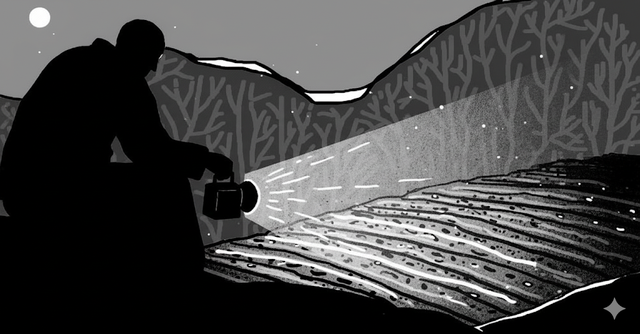









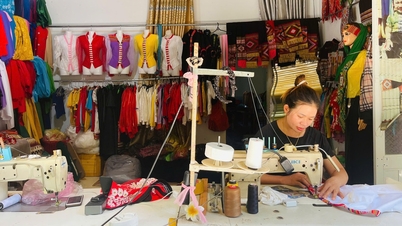
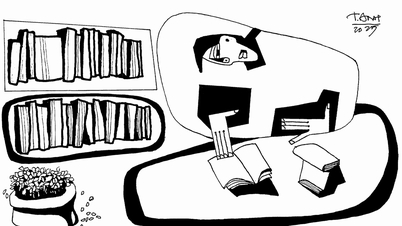
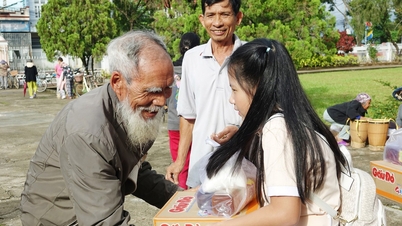
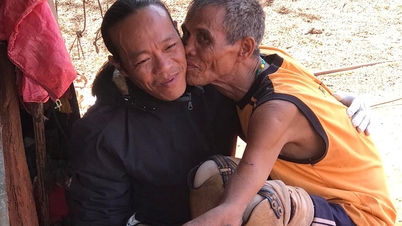
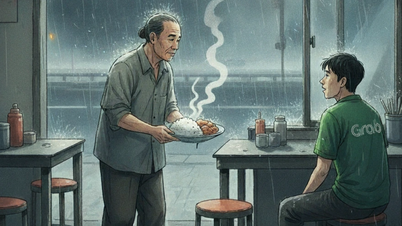
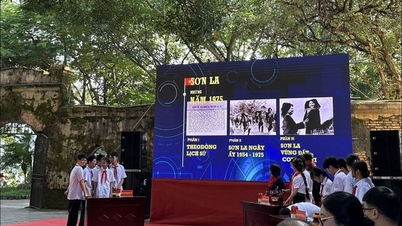

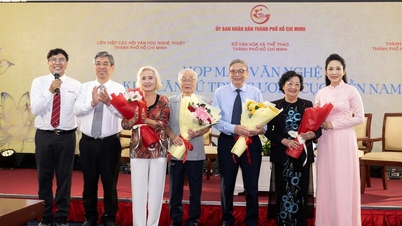






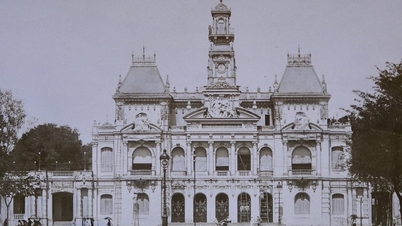














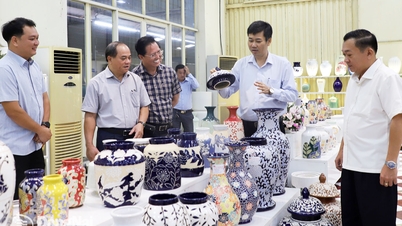









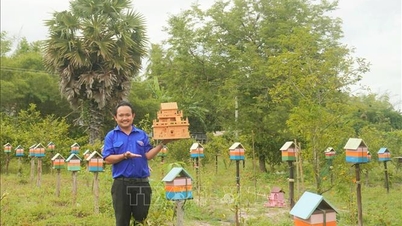






















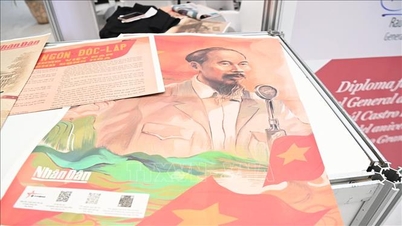







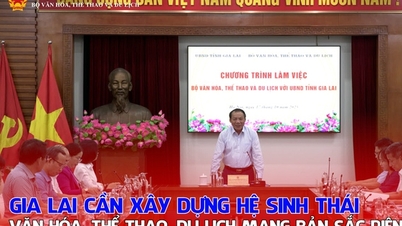























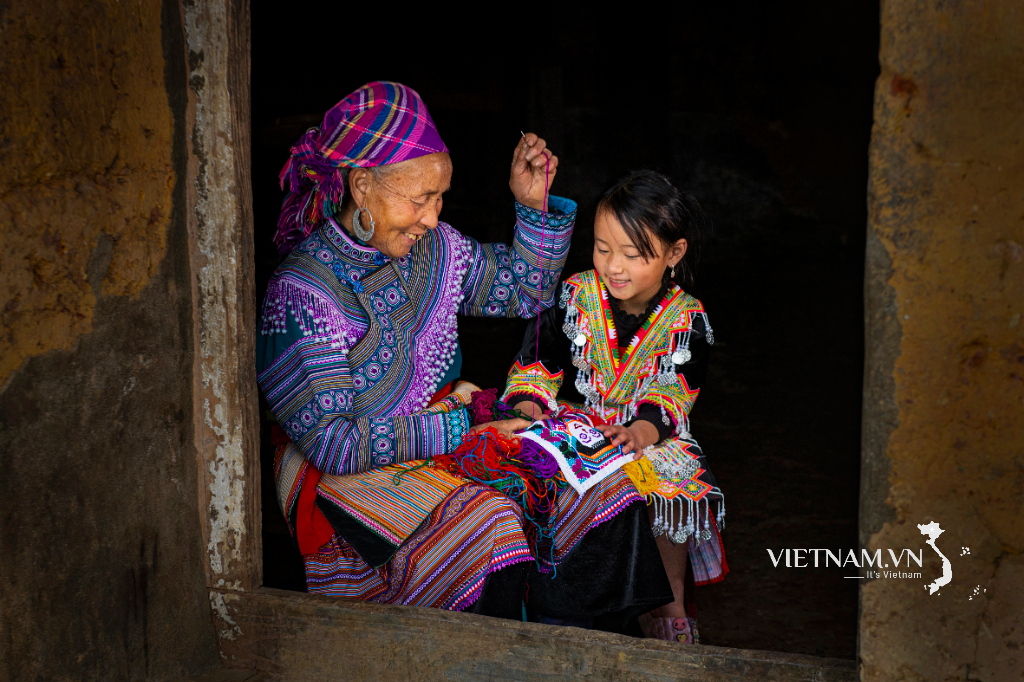
Comment (0)